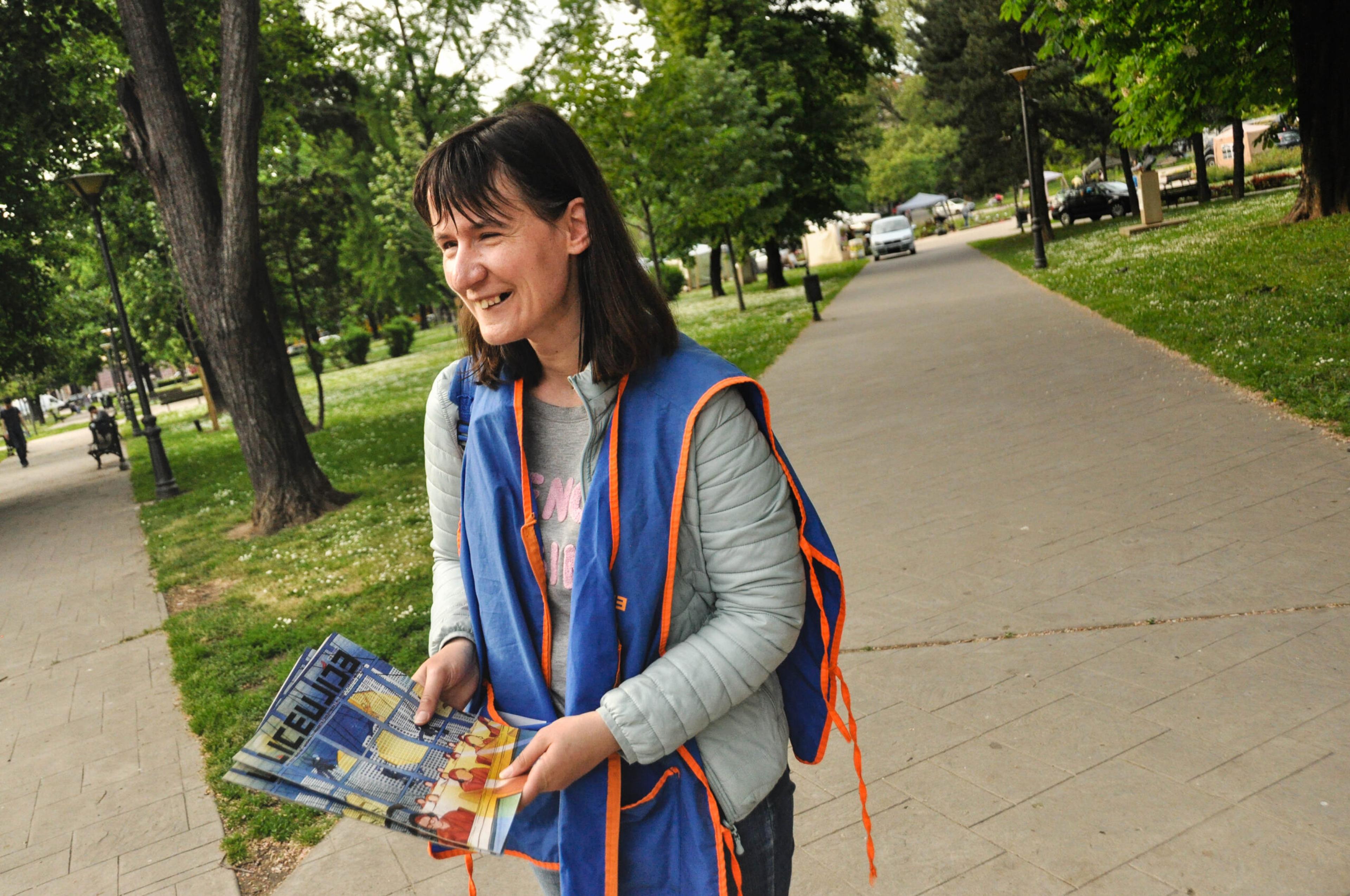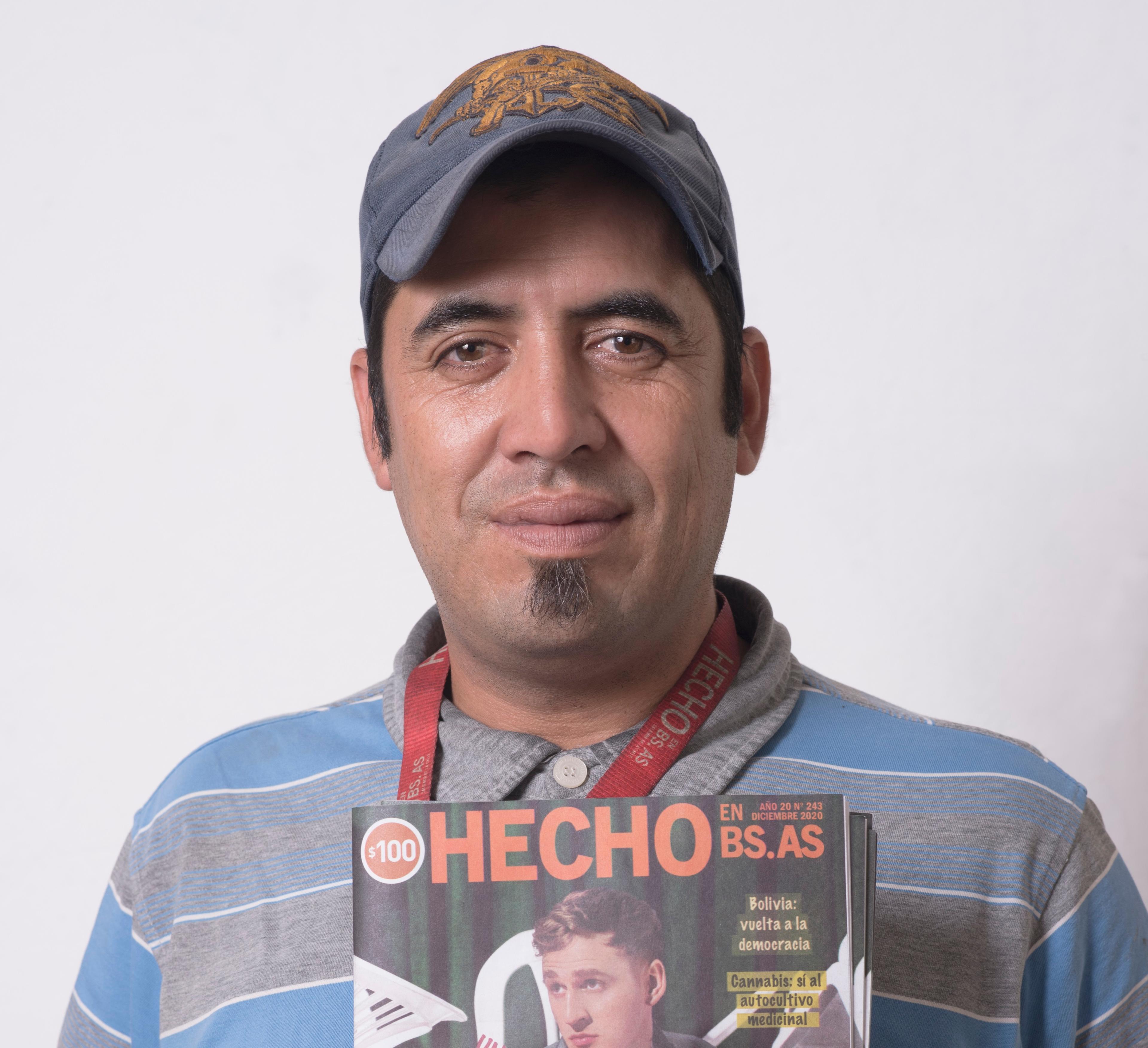Meet Traços vendor Thifany Branco

Thaís Mallon
“I came to Brasília to stay, to build my dreams here,” says Thifany Isabella Branco. The city offered a new beginning for her as a Spokesperson for Culture with local street paper Traços.
- Vendor stories

Please note, this article first appeared in the Brazilian street paper, Traços, and was translated to English through Translators Without Borders.
“I came to Brasília to stay, to build my dreams here,” says Thifany Isabella Branco with her firm but soft voice — a radio announcer’s diction. The city offered a new beginning for her as a Spokesperson for Culture with local street paper Traços. She is not afraid to change course when necessary, nor to seek out new chances to be happy.
Fascinated by the Federal District, but still trying to adapt, Thifany was welcomed in Ceilândia, lived in Asa Norte for a while and is now heading to Varjão.
Although it is her first time stepping onto the red soil of the cerrado, her bond with Brasília has a history: she was one of the first Spokespeople for street paper Traços do Rio de Janeiro, the younger sibling of the older Traços in Brasilia, launched two years ago.
She also shone in the 3x4 section of the third edition of the Rio publication. “When I found Traços in Rio de Janeiro, I was going through a very sad moment in my life,” she says.
Overcoming difficulties
In 2021, in the midst of the Covid-19 pandemic, Thifany had just been the target of a wave of layoffs in a government programme where she worked as a technical advisor. Simple luxuries, such as air conditioning and gym memberships, gradually disappeared, until money for rent also became scarce. She handed over the keys of the apartment she had lived in and went to a homelessness shelter.
“I got there completely devastated, with no self-esteem,” she says.
Unmotivated and with dark thoughts running through her mind, she continued her daily battle, seeking new work and the strength to move forward. Then, one day, a poster in the hall of her temporary home caught her eye.
“I saw a note talking about Traços, a phenomenon in Brasília that took people out of vulnerability, off the streets, and that had an impact on me,” she says.
She soon found herself selling magazines. Through her interest in culture and her skills in dealing with people, she saw small signs of transformation in her life, from a new perfume to a different bag, until she was once again able to rent a little place to call her own. Further, through the magazine, she met artists, participated in events as a speaker and expanded her network.
Abandoning herself
But an abusive relationship through her off track. She defines her ex-partner as an “emotional embezzler” and says that she has bet on the wrong people many times in her life. “I handed my need to be complete onto anyone,” she says.
This relationship breakdown prompted Thifany to leave Rio de Janeiro and spend some time in São Paulo, but financial hardship led her to turn to sex work. “There is a lot of violence on the sidewalks, on the streets,” she says.
The physical, psychological and financial abuse that she faced were plenty, as were the threats. As a transgender woman, she has faced particular challenges in her academic, social and professional life. In her romantic life, the situation is no different. She says that the isolation experienced by trans people, incited by prejudice, creates additional vulnerability.
“The majority of trans women don’t have as many privileges as cis women, because they are abandoned by their family,” she says.
In Thifany’s case, she was forced to deny her true self to avoid familial abandonment. Her attempts to blossom were hampered by violence and, along with other traumas, led her to attempt suicide at the age of 15.
By that age, she had already faced a religious upbringing that denied her identity; attempted rape; discovering that she was adopted without having been prepared for the news; and her mother being imprisoned after ordering the death of her father, himself accused of paedophilia.

Finally, Thifany
It was after with her mother’s death, when Thifany was 32, that she truly became herself. Now, at 43, she values that authenticity, even if the world outside sometimes lacks due kindness.
Born in Pará, she grew up in São Gonçalo, Rio de Janeiro, and her reset in Brasília has offered her a chance to affirm her identity even more. “In São Gonçalo, people knew me in my old gender. When I went to Rio de Janeiro, I was practically transitioning to my current gender,” she says.
“Here in Brasília, I arrived like this, you know? In the feminine form of a woman. I see that people respect me like this at the places I go to, they treat me as “ma'am” – as female. It’s another new experience, a different place.”
In the federal capital, she hopes to find a place in the sun – to abandon the constant insecurity of having to live in hostels or to sofa-surf.
She also hopes to access the formal job market in her academic area. In addition to being a makeup artist, Thifany has a degree in advertising thanks to the support of a scholarship for minorities from Faculdades Integradas Hélio Alonso (FACHA). She graduated in 2020 with a Course Completion Work (TCC) on LGBTQIA+ representation in commercials.
Challenges in the job market
Thifany’s education opened some doors, such as a job opening at the Rio de Janeiro Court of Justice in a programme aimed at people in vulnerable situations — a period that she remembers fondly. But the contract could only last two years to give more people the opportunity.
Despite speaking English, having a diploma in hand and many other skills, Thifany often receives responses like “you are not part of the company's profile” in her search for a permanent job. She says that even programmes aimed at boosting trans employability end up offering opportunities with limiting requirements, calling for either youth or an extensive list of experience.
But Thifany is not discouraged. Dreaming is necessary, and she nurtures her own utopias diligently.
She thinks about visiting more places in Brazil, a carnival in Bahia, a cold season in the south; learning another language; studying a musical instrument (like the keyboard, which she tried when she was involved in the evangelical church); attending another college; and one day having her own project to help vulnerable communities to learn new languages.
“But it wouldn’t be any small thing. I want these courses full of equipment, computers, music classes, like I had from my adoptive family,” she says.
She cites Rogério Barba, the first Spokesperson for Traços, who today runs the Barba na Rua social project, as an inspiration. Her distinctive voice also draws attention: several people have suggested that she start her own podcast, and she daydreams about that too.
Looking forward
Thifany has a strong social media presence: she uses Instagram, Twitter and TikTok, and loves watching channels like Diva Depressão on YouTube, which offers behind-the-scenes stories of celebrities and curiosities from the pop world. I’m a little curious about the lives of celebrities, you know?” she laughs.
While following, in her free time, the relationships of actresses and singers, the Spokesperson keeps her own heart closed for balance. She only intends to let in those who really want to enter — and her work with Traços has become her a priority. This relationship, at least, has been fruitful, because “every month I reach some goals,” building her own fresh start one day at a time.


